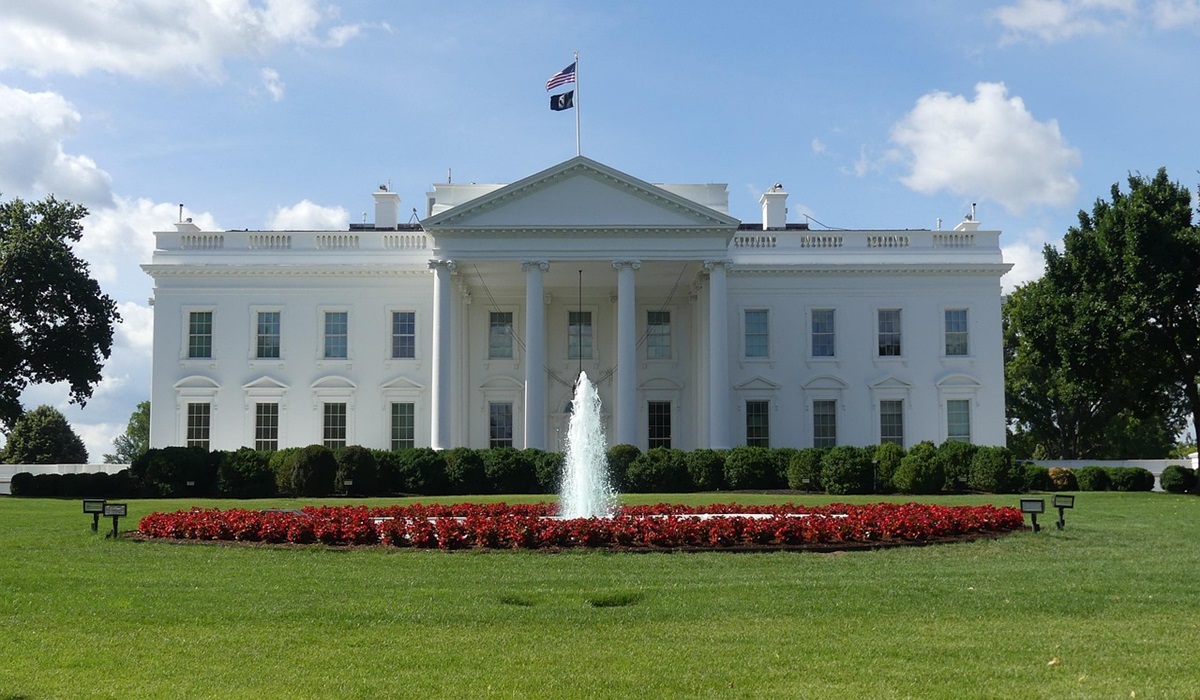America Can’t Continue to Bully the World and Still Expect Its Business
- TDS News
- Op-Ed
- Trending News
- June 22, 2025

By: Donovan R. Martin – Editor in Chief
Image Credit, Nils Wende
There was a time when the American handshake meant something. It stood for trust, for opportunity, for the promise of free enterprise underpinned by democratic ideals. But that era is slipping into memory. Today, the United States finds itself increasingly isolated, not because the world has turned against democracy or capitalism, but because the world is done being bullied by Washington.
For decades, the U.S. relied on a foreign policy and trade model built on coercion cloaked in diplomacy. If a nation stepped out of line, sanctions followed. If a country refused to open its markets, threats of tariffs, aid cuts, or military pressure ensued. American businesses profited off the back of this global architecture—cheap labor abroad, unchallenged dominance of the dollar, and market access secured by political muscle. But that model is breaking. And Donald Trump’s return to the world stage—with his weaponized tariffs, economic nationalism, and penchant for antagonizing allies—has hastened the global shift away from America. The consequences for the U.S. economy are already devastating and will grow more acute with every passing year.
Let’s be clear: America didn’t lose the world’s goodwill overnight. This decline has been decades in the making. From the toppling of democratically elected leaders in Latin America, Africa, and the Middle East to the endless wars in Iraq and Afghanistan, many nations have long viewed American “partnership” as a euphemism for exploitation. But even as resentment simmered, the world kept doing business with America—because the alternatives were weaker or nonexistent. That’s no longer true.
Today, countries are choosing regional trade blocs, bilateral deals, and emerging powers over American markets. The rise of BRICS (Brazil, Russia, India, China, South Africa—and now expanded to include Iran, Cuba, Egypt, and others) represents a major turning point. These countries aren’t just trading among themselves; they’re building alternative financial systems, bypassing the dollar, and deepening economic interdependence outside U.S. influence.
Under Trump, America’s belligerent tone and erratic policies have accelerated that shift. The reimposition of tariffs on China, Mexico, Canada, and the European Union sent a clear message: trade with the U.S. comes with strings attached. Worse, it comes with the threat of political retaliation. Trump doesn’t just view tariffs as economic tools—he uses them as bludgeons to force submission. And other nations, especially those in the Global South, have had enough.
Take Africa, where U.S. influence is crumbling in real time. American businesses once held sway across the continent through aid programs, corporate investments, and security partnerships. But now, African leaders are openly rejecting Western paternalism. Countries like Burkina Faso, Mali, and Niger have expelled U.S. and French military forces, turning instead to China, Russia, and regional partnerships. This isn’t just about geopolitics—it’s about economics. These nations are choosing business relationships that don’t come with lectures or regime change conditions.
Look at Latin America. For years, the U.S. treated the region as its backyard, undermining governments it deemed unfriendly and pushing trade deals that served U.S. multinationals. Now, Latin American nations are asserting autonomy. Mexico has diversified its trade relationships, Brazil is deepening its ties with China, and even longtime allies like Colombia are drifting away from the U.S. orbit. When Trump slapped tariffs on steel and aluminum imports from Brazil and Argentina, it was seen not as economic policy, but as betrayal.
Even America’s closest allies are no longer guaranteed business partners. Europe, for instance, is moving forward with its own defense initiatives, trade agreements with Asia, and climate policies that clash directly with U.S. priorities. France and Germany have grown wary of being dragged into American conflicts or economic wars—especially those that hurt their own industries. The recent blowback from U.S. tariffs on European electric vehicles is just the latest sign that even the West’s patience is wearing thin.
The result is simple but devastating: American companies are losing access, influence, and relevance. Boeing is bleeding contracts to Airbus and Chinese aerospace ventures. U.S. agricultural exports are getting undercut by Brazilian soy and Russian wheat. Even in tech, once a fortress of American dominance, countries are turning to local or regional providers due to data sovereignty concerns and U.S. surveillance history. That’s not just lost revenue—it’s lost leadership.
Let’s also not ignore the cost of dollar weaponization. When the U.S. freezes foreign assets or sanctions central banks, it sends a chilling message to the world: your money is only safe if you obey Washington. This has led many countries to diversify their reserves, sign trade agreements in yuan, rubles, or local currencies, and build payment systems independent of SWIFT. That erodes the dollar’s supremacy, and with it, America’s ability to borrow cheaply, fund its military, and maintain global leverage.
Trump’s tariffs are the most visible symbol of this unraveling. They’re sold to the American public as “bringing jobs home,” but the data tells a harsher truth. Manufacturing jobs did not return en masse. Instead, input costs rose, retaliatory tariffs hurt American farmers and small businesses, and supply chains grew more expensive and less reliable. The idea that you can bully the world into compliance while still demanding it shop at your store is not just arrogant—it’s economically suicidal.
And yet, the myth persists. Trump’s political base eats up the narrative that tariffs punish cheaters and protect American workers. But in reality, the world has adjusted. Factories are going to Vietnam, Indonesia, and India—not back to Ohio or Michigan. Foreign consumers are buying Korean electronics and Chinese EVs, not American ones. The more America isolates itself, the more it loses relevance in the world it helped build.
It doesn’t have to be this way. There’s still time to rebuild trust, restore partnerships, and embrace a new model based on respect, mutual benefit, and humility. But that window is closing fast. Other nations are no longer waiting for America to get its act together—they’re moving on. And once those trade routes, financial systems, and diplomatic alliances solidify without the U.S., there’s no going back.
America cannot continue to treat the global marketplace like a mafia don demanding tribute. You don’t get to insult your trading partners, impose unilateral tariffs, sabotage global institutions, and then expect the world to keep buying your goods and funding your deficits. The empire of influence is shrinking, and the economic reckoning has begun.
The world is telling America something loud and clear: we’re good without you. And if the United States doesn’t listen, it won’t just lose business—it’ll lose the future.








